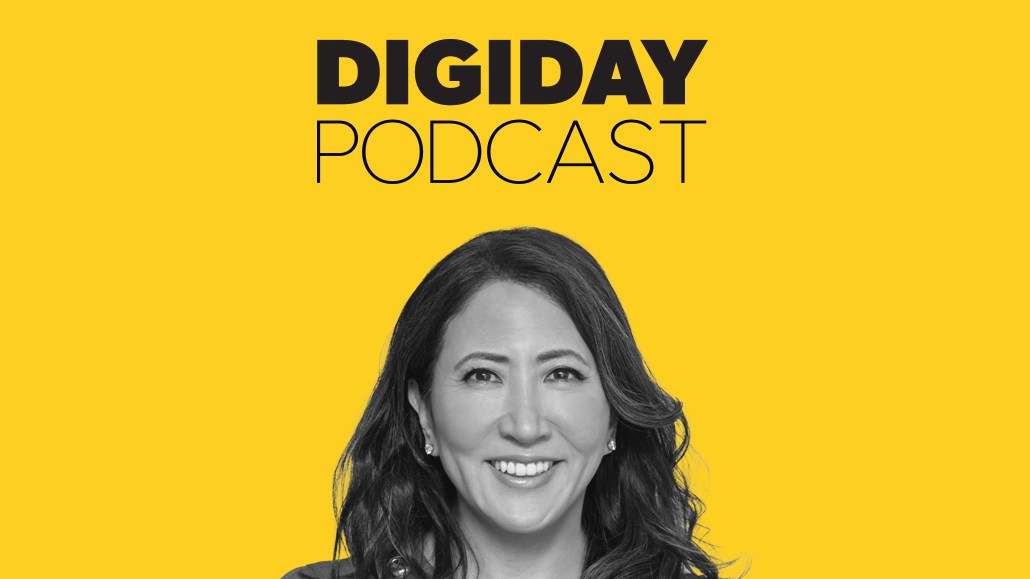Secure your place at the Digiday Publishing Summit in Vail, March 23-25
‘For your consideration’: How Janice Min is selling entertainment advertisers on The Ankler

Subscribe: Apple Podcasts • Spotify
Earlier this year, Janice Min, CEO of The Ankler, said that she’s expecting to hit $10 million in annual revenue in 2025. During a podcast recording with Digiday, Min revised that statement to say, “We have a shot of getting to that number this year.”
To do that, Min’s team is taking a three-pronged, straightforward approach: Make good content to attract audiences, quality audiences that are attractive to advertisers, and combine those things in-person through events.
“I wish we had some AI-generated something that was going to be the thing that rains down millions of dollars on us, but it’s really boring,” said Min.
“Boring” or not, it’s notable that a media company that launched in January 2022 and covers Hollywood is charting revenue growth at all amid two major film industry strikes as well as a tumultuous period for advertising revenue.
On the latest episode of the Digiday Podcast, Min shares how “tune-in” advertising and “for your consideration” advertising have persisted despite the strikes and how The Ankler, born on Substack, has expanded across platforms to become a full-fledged digital media outlet.
Below are highlights of the conversation, which have been lightly edited and condensed for clarity.
Only room to grow
In the first six weeks of this year, we had more advertising revenue than we did in the entire first year of the company in 2022. It’s nice momentum and I will give ourselves credit for that growth. But also, we had no advertising when we started. We started with Amazon as our launch partner in 2022, so we did have sponsorship [revenue] … but we only have room to go up and we’re not facing 20-year historical figures.
The last protected ad category
Fast forward to two years later, today we have Netflix, Apple, Warner Brothers, I mean, we have everybody. There’s not any major player in the industry who is not advertising. Currently, we have both tune-in advertising, which is, “Come see this movie coming out.” But we also have what’s called “for your consideration” [FYC] advertising.
[FYC] is probably one of the last protected classes of advertising, because you can’t have Google steal it, Facebook advertising can’t take it, because all they want, these studios and streamers, is to reach this very specific audience. And they want to control the message. They want to know it’s in the right environment. And so there is no CPM. It’s just sort of this sense and belief that you are reaching the quote unquote right people, which in this case out here are [awards] voters.
Unexpected silver linings
A funny phenomenon is happening here, where the strikes were horrible. They went on [for] six months, I mean, almost unthinkable at the outset. And it did coincide with an award spending season around Emmys. [FYC advertising for the Emmys] was up — we were up — I would think we would have been up more … But when the strike ended … It felt like the dam broke.
The strikes did have this effect of Hollywood coming back with a vengeance saying, “We want to be more Hollywood. We don’t want to be taken over by sports.” … I think part of that accounts, actually, for a huge increase [in advertising revenue] so far this year.
More in Podcasts

‘An ethics issue’: Why some creators are re-auditing their brand deals after Hootsuite-ICE controversy
Hootsuite’s partnership with ICE sparked controversy earlier this year, prompting creators to re-examine their brand deals and ethics standards.

ChatGPT enters the ad game. Now what?
OpenAI has begun testing ads in ChatGPT through premium brand partnerships, signaling a new phase in its monetization strategy.

Digiday ranks the best and worst Super Bowl 2026 ads
Now that the dust has settled, it’s time to reflect on the best and worst commercials from Super Bowl 2026.








